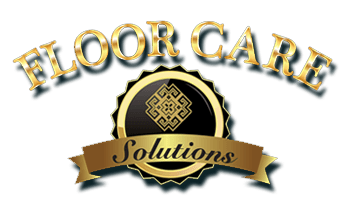Finding a reputable, professional commercial textile carpet and upholstery cleaning company to work for your facility is important. The right choice will provide peace of mind and confidence about the quality of service they perform.
The way you learn about a company is to ask specific questions and listen carefully to the answers. Here are some questions we suggest you ask:
1. What method or methods of carpet cleaning do you recommend?
2. What type of equipment do you use to clean carpet?
3. How long will it take my carpet to dry?
4. How often should I get my carpets cleaned?
5. Will you provide a planned maintenance-cleaning program?
6. What percentage of your business is commercial textile and carpet cleaning?
7. What formal training have you had in carpet cleaning?
8. Are you certified by the IICRC and will you show me your ID card and certificates?
9. Do you guarantee your work?
Most importantly ask for references. Professional carpet cleaning companies should be able to provide you with a list of satisfied clients and their phone numbers. Also, find out how many years they have worked with those clients. Long business relationships are a good indicator that the cleaning company provides high quality workmanship and excellent service.
The answers to these questions will help you make an informed decision before hiring a commercial textile and carpet-cleaning contractor. Here are the answers you should be receiving to know you've found a top professional.
o Commercial carpet cleaners need to be able to use several different cleaning methods, because of the wide array of commercial textiles and unique situations of each facility.
o Hot water extraction, dry shampoo, dry compound, and high flow extraction all require different types of equipment. Most facilities require multiple cleaning methods and equipment to meet their specific needs.
o Drying time is important for a couple of reasons. First, how soon can the area that's been cleaned be returned to service. Also extended dry times can effect the relative humidity in confined spaces adversely effecting indoor air quality.
o The IICRC S100 and or EPA guidelines for cleaning frequency, is the answer.
o Planned maintenance requires an analysis of the facility. If they do not request an interview to gather information about your unique facility, you will be receiving the rule of thumb program, not what is appropriate for your facility.
o The percentage of commercial cleaning is important because many residential carpet cleaners tend to dabble in the commercial market to off set slow months of residential cleaning. They often lack the proper equipment and training. The best commercial cleaners are specialist - it is all they do. They should also be IICRC certified in commercial carpet maintenance as well.
o Professional training is crucial because of the fact that less then 20% of carpet cleaners have had any formal training what so ever. Professional training thru IICRC accredited courses and instructors is the industry standard. In addition, your carpets warranty may be voided if your carpet is not cleaned by an IICRC Certified firm or technician. Many of the major carpet mills now require IICRC Certified cleaning to industry standards or your warranty is void. So having your carpet cleaned by the building handy man or janitor is not in your best interest.
o The best companies are IICRC certified firms that are required to have certified technicians. Certified firms and technicians have identification cards as proof of their credentials and competency. Verification is also easy, just log on to www.certifiedcleaners.org and click on locate a pro. Type in your city and choose master textile cleaner from the drop down box. According to industry statistic, less than two percent of all certified cleaners will ever attain a Masters Certification. A Master Textile Cleaner assures you, you will be getting the best of the best in the industry.
o Reputable Companies always guarantee their work, because they are completely confident in their ability to; consistently produce the highest quality results.
